Graham Reid | | 6 min read
Philip Glass: Heroes (from Heroes Symphony, 1997)
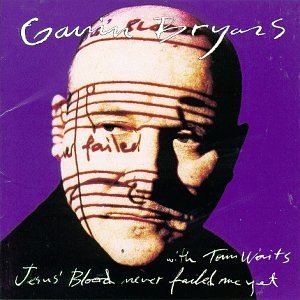
In many ways Rory Johnston
looked exactly what he was, the vice-president of A&R (artists
and repertoire) of a contemporary classical music label. It was there
in the high, broad forehead and clear eyes, in the modulated speech
and the vocabulary which didn't shy from a polysyllable or two.
When I met him in the mid Nineties in
Auckland – he came there to see the world premiere of Jaz
Coleman’s Symphonic Pink Floyd concert, the album of which was on
his Point label – the English-born New Yorker did the business of
talking up the new label with good humour and candour, unafraid to
concede they'd made mistakes in the past.
Launching this edgy, always interesting
label with a kind of cut’n’paste “opera” about Charlie Manson
and his band of murderous followers was not the smartest of ideas, he
admitted with a laugh.
Founded by classical composer Philip Glass -- reputed to be the world’s wealthiest living composer – and other heavy-hitters in '92, the Point Music label otherwise offered some of the most accessible but challenging contemporary classical music around at the time.
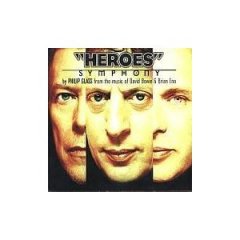 Unlike what some might have
expected, the music on the label didn't embrace the minimalism for
which Glass became famous but had slewed off into conspicuous sales
successes with symphonic treatments of the David Bowie-Brian Eno
albums "Heroes" and Low, and of Pink Floyd.
Unlike what some might have
expected, the music on the label didn't embrace the minimalism for
which Glass became famous but had slewed off into conspicuous sales
successes with symphonic treatments of the David Bowie-Brian Eno
albums "Heroes" and Low, and of Pink Floyd.
There was another recording of Gavin Bryars’
hypnotic Jesus’ Blood Never Failed Me Yet (which had previously
been recorded for Eno's Obscure label), the haunting cello and voice
of the late Arthur Russell on Another Thought, albums which
incorporate musicians from across the planet (notably West African
Foday Musa Suso on The Screens) and, of course, that opera when the
helter skelter came down.
“The Manson Family opera, in
hindsight, was probably a mistake,” laughed Johnstone. “It`s very
hard to put something like that into the PolyGram jazz and classical
departments," he said referring to the major label which was
distributing Point.
“We had a very funny experience with
that. We sent the record over to Holland where they have a Musical
Approval Department where they are meant to check the score against
the recording to make sure there are no mistakes.
“Well, the first thing is there
isn’t. any score so we said, just listen to it. Two days later I
get this phone call from them and there’s uproar -- some guy had a
heart attack when he heard all this heavy hardcore language. I’d
only been to Holland once and I could just picture it. It’s a very
dignified place and this was a very sleepy little town. They thought
it was disgusting, people were going to quit.
“In the classical world, it's very
staid.”
Within the world of contemporary
classical music things were changing rapidly as a new breed of
artists - call them post-Beatles, post-Glass, if you will -- grabbed
ideas from all aspects of popular culture and world musics and
brought them into a new style.
Artists such as Jaz Coleman equally inhabited the world of rock music with Killing Joke, lived in Auckland at the other end of the planet from Point's downtown New York offices but who also scored the Symphonic Floyd album which spent most of '95 at the top of the contemporary classical charts in the States.
 It was hardly surprising then when
Johnston, with a very clear twinkle in his eye reveals his
background. Very non-U.
It was hardly surprising then when
Johnston, with a very clear twinkle in his eye reveals his
background. Very non-U.
Before he joined Point as a production tour manager, he “worked on and off with [former Sex Pistols manager] Malcolm McLaren.”
That's him hiding in the middle (left) of the photo.
“I was American tour manager of the
Sex Pistols, which was brief employment but, yes, I booked the tour
and was on the road every day."
So, to quote Johnny Rotten, did he ever
get the feeling he'd been cheated?
“Well, Malcolm has the tendency to
leave you with that feeling. I don’t think he’s quite as bad as
people make him out, but he does take advantage of people and
suddenly something you’ve come up with is Malcolm’s ideal.”
Following that short-lived mayhem
Johnston became tour production manager for the Clash, Siouxsie and
the Banshees, Blondie, the Runaways . . .
Then hitched his wagon with McLaren’s
teen-bait project Bow Wow Wow and later managed the band's
front-person, the Lolita-like Annabella Lwin. And curiously it was
that connection which lead him into the world of American
contemporary classical music.
“I had known Philip through his
producer whose wife was Bow Wow Wow’s A&R person, and was asked
to join Point doing tour production. From there I took over the
day-to-day running of the office.”
And some office it is where you can
find David Bowie and Philip Glass hanging round the water cooler
discussing David doing a version of Philip's Mishima soundtrack or
their symphonic treatment of the Bowie-Eno Heroes album.
“Philip often talks of crossover
audiences, rather than crossover albums and the idea is to foster the
cross-pollination of disciplines and collaborations.
“The label isn't there to be Philip's
label. He is signed to Nonesuch and the only things of his on Point
are not core catalogue or career albums as it were. We’re there to
be the label for people like Jaz.”
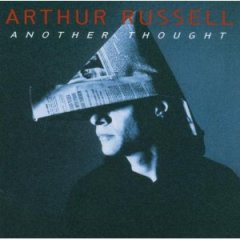 He also mentioned the late Arthur
Russell – a downtown classical composer with one foot in the dance
world and who died of Aids-related illnesses, leaving a legacy of
over 1000 tapes, some of which were edited to become the exceptional
Another Thought album,
He also mentioned the late Arthur
Russell – a downtown classical composer with one foot in the dance
world and who died of Aids-related illnesses, leaving a legacy of
over 1000 tapes, some of which were edited to become the exceptional
Another Thought album,
The album wasn't as financially
successful as they had hoped. ("We had no spokesperson for it.
Not that that Arthur was particularly good at being a spokesman when
he was alive, that's why we've ended up with thousands of tapes!”).
But there would be another Russell
album he promised, “a remix record using some of that plus other
material – and we're going to make it a combination of dance and
classical because he was so strong in the dance world”.
“We're getting some people from the
dance scene and people like Laurie Anderson and Philip, and work into
that new kind of format. And there’s tremendous interest from [UK
dance label] Talking Loud. So we'll use them as the front end to get
it into dance parties."
Classical music that uses Charlie
Manson, Pink Floyd and David Bowie as its source material? That
remixes cello and vocals for dance clubs? That boasts
"pre-renaissance dance music" from the avant-garde Zoar
group?
It was classical music for the Nineties
-- and a long way from the Sex Pistols.
 The Point Music label released albums
such as Brian Jones Presents the Master Musicians of Jajouka (an Essential Elsewhere album but not without controversy, see here), the
London Symphony Orchestra playing the music of Pink Floyd and Led
Zeppelin, a number of Glass albums, and Arthur Russell (Radio Edits).
The Point Music label released albums
such as Brian Jones Presents the Master Musicians of Jajouka (an Essential Elsewhere album but not without controversy, see here), the
London Symphony Orchestra playing the music of Pink Floyd and Led
Zeppelin, a number of Glass albums, and Arthur Russell (Radio Edits).
But the label folded in 2002.
It had lasted a decade and had released
around 30 albums.


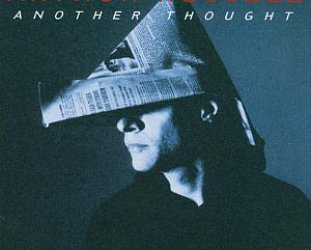
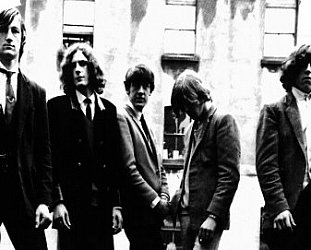
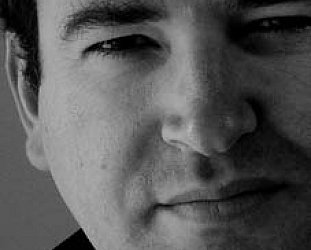


post a comment